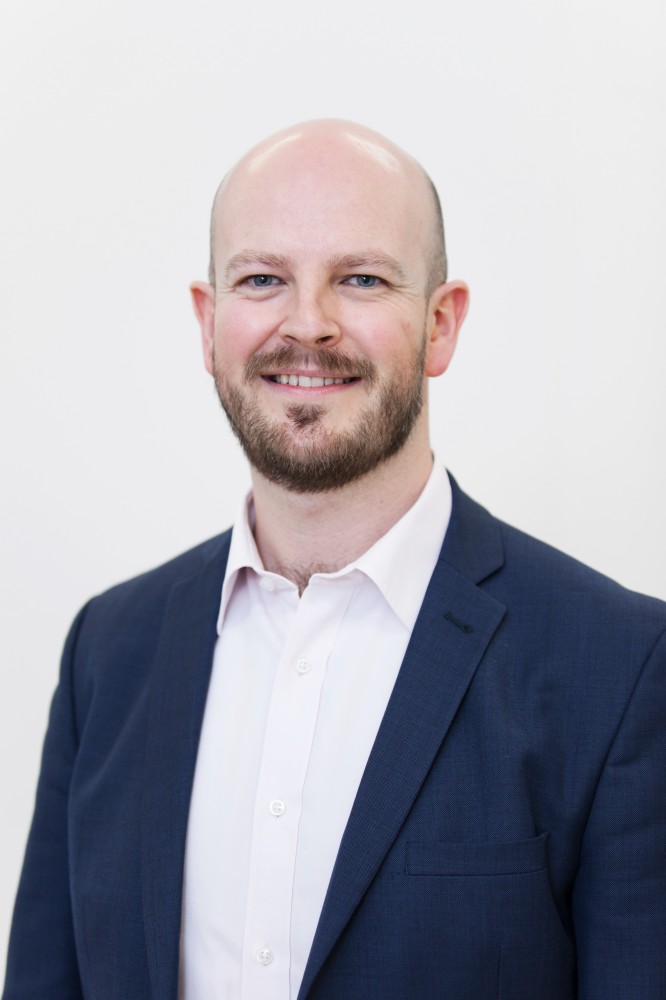Emlyn Samuel is a FLIER programme participant and Director of Policy at Cancer Research UK where he works on issues such as improving the research environment and how cancer services are run.
My first job was at the Academy of Medical Sciences, who took a punt on me and offered me a policy job. I bit their hand off because I knew this was exactly the type of organisation I wanted to work for.
I’ve been in policy ever since, moving from the Academy to the Wellcome Trust and then to Cancer Research UK, and that’s given me a good breadth of experience in science and health policy.
After some time in my current role, the ethos of FLIER really appealed to me, especially the idea of learning from others in different sectors to deliver positive change in the life sciences environment. It’s about creating leaders who can influence change in a collaborative way.
As part of the FLIER programme, I had been developing a project in early detection and diagnosis of cancer. We know that if we diagnose cancer early, there’s a better chance of survival but in the UK now, we only diagnose about half of all cancers at an early stage.
Both Cancer Research UK and the UK Government have ambitions to drastically increase early diagnosis. But, do we have the right environment in business, academia and the NHS to enable the growth and implementation of the innovative diagnostic technology we’ll need? This will undoubtedly be a key part of our work going forward.
My plan was to bring stakeholders together to explore these challenges and how they could be overcome, but the COVID-19 pandemic has brought disruption in so many ways, and at Cancer Research UK we’ve had to react and reprioritise very quickly. We’ve seen a massive drop in our fundraising income that’s having a knock-on impact on the organisation and our research spend. And, of course, there’s been huge disruption to cancer care in the NHS.
FLIER has put me in a better position to manage this change. My role, and the role of my team, in influencing the Government to help mitigate the impact has become even more important.
I feel like I’m learning a lot and, as a result, I’m thinking again about my project. Something I’ve encountered through this crisis is that we could do much more to articulate how UK R&D works as an ecosystem, and the importance of medical research charities within this.
By and large, charities are disease specific, so we bring huge amounts of expertise in these areas. We have patient communities who help set our priorities and ambitions and help us to make the biggest impact.
We also fund in areas of unmet need or that are potentially riskier than others would take on. Industry then benefits from that because they’re more likely to take the research on in the long run. The economic benefit that we also bring is often not recognised.
Unfortunately, a lot of this is at risk due to our funding situation. But in these challenging times collaboration becomes even more important – with charities, but also with our other partners in industry and government. I’d like to explore how we can tell that story better, how collaborations could be strengthened, and how to demonstrate that the UK life science ecosystem is unique because of these different players and the partnerships between them.
In the end, what I hope to achieve is to help foster and utilise science for the benefit of patients. Careers can take lots of different directions but it’s important to be clear about that thread of motivation. FLIER has really helped me hone down what my thread is, and I know that will help me achieve my goals in the future.
Emlyn Samuel is a participant in Round 1 of the Academy of Medical Sciences’ FLIER Programme, a unique programme that will develop leaders of the future who can create collaborations across academia, industry, the NHS and government to drive innovation.
The FLIER Programme is generously supported by the Dennis and Mireille Gillings Foundation and the Government Department of Business, Energy and Industrial Strategy ‘Investment in Research Talent’ fund. If you would like to support the work of the Academy to develop talented researchers, visit our Supporters page.
